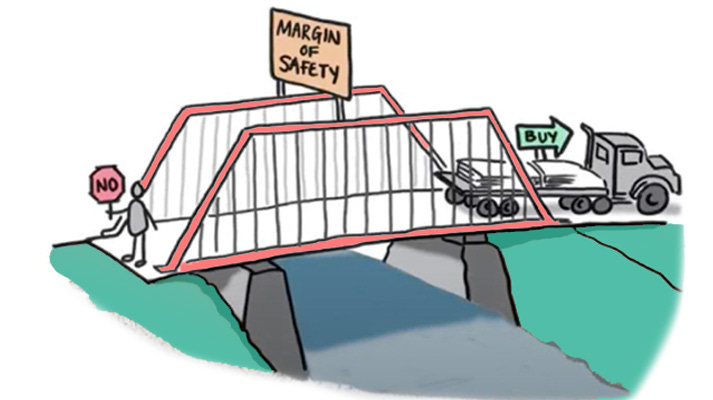Margin of Safety
Robustness - Adverse Events - Unpredictability - Antifragililty - Bullish
Hello, I am Nicolas Bustamante. I’m an entrepreneur and I write about building successful startups.
Check out some of my popular posts:
The Impact of the Highly Improbable
Surviving Capitalism with Competitive Moats
Subscribe to receive actionable advice on company building👇
Last year, I read every book written by value investors that I could get my hands on. It helped me understand what is now one of the essential concepts in my life, the margin of safety. The idea is simple to understand, hard to implement but extremely rewarding in its application.
Having a margin of safety in the investing world means buying assets at a significant discount from their intrinsic value. In the words of Seth Klarman in his book Margin of Safety: “Value investors, by contrast, have as a primary goal the preservation of their capital. It follows that value investors seek a margin of safety, allowing room for imprecision, bad luck, or analytical error in order to avoid sizable losses over time. A margin of safety is necessary because valuation is an imprecise art, the future is unpredictable, and investors are human and do make mistakes. It is adherence to the concept of a margin of safety that best distinguishes value investors from all others, who are not as concerned about loss.” The margin of safety is common sense, and its application goes beyond finance.
We commonly use a margin of safety in our daily life. For instance, we get ahead when we travel, or we buy presents before Christmas day. With the same idea, bridges or elevators are built to carry more weight than they daily support. A margin of safety creates robustness to unpredictable adverse events. Who wants to miss a plane for a two-week holiday because one didn't get ahead to the airport? Probably no one and yet many people miss planes.
It's a surprisingly complex concept to implement because it goes against efficiency - or at least a naive view of efficiency. One can supposedly enhance returns by reducing the margin of safety. Why get an hour ahead of when ten minutes might be sufficient? Here returns can be improved by enjoying more free time. Why pay a lot of money to build bridges that can carry two times their daily charge? Returns will be enhanced by paying less. These types of trade-offs are made every day. Somehow ignoring the potentiality of adverse events, the margin of safety is reduced, and risk is added.
Winning any game in life means surviving and staying the course. There is no point in taking the risk of losing a lot to enhance the returns a bit. The margin of safety, often in the form of redundancy, is efficient. Nature understands that. We have two lungs or two eyes, even if one is sufficient. Rare, unpredictable, and extreme events drive our life. The only way to stay the course while avoiding stressful situations is always to have a margin of safety. It's a cost worth paying for because it creates stability during the chaos and allows the prudent to be bullish when others are fearful.
Anonymous survey: What would have made this article more helpful?
If you found this article valuable, please consider sharing it 🙌



Hello Nicolas,
Thank you for this list of great articles regarding value investing. This comment is not necessarily linked only to this last article. I have been trying to be a value investor for the past three months (;P), and I'm facing some challenges. First of all, I didn't find one person I couldn't convince that value investing is the best long-term strategy. However, I'm often struggling to know if there is a bubble: Are properties in Paris a bubble? (people are still ready to pay high rents to live in Paris) Are cryptos a bubble? (there is a real intrinsic value in XPR replacing swift). Second, in a symmetric information world, if people evaluate investments the same way, there is theoretically an equilibrium "profitability/risk/liquidity(/impact)" that arises. So, to "beat the market", you might need either: an asymetric information, a better way of evaluating value, a better acceptance of risk/illiquidity/damage, luck. What do you think about it? (it might lead to more comments from me '^^)